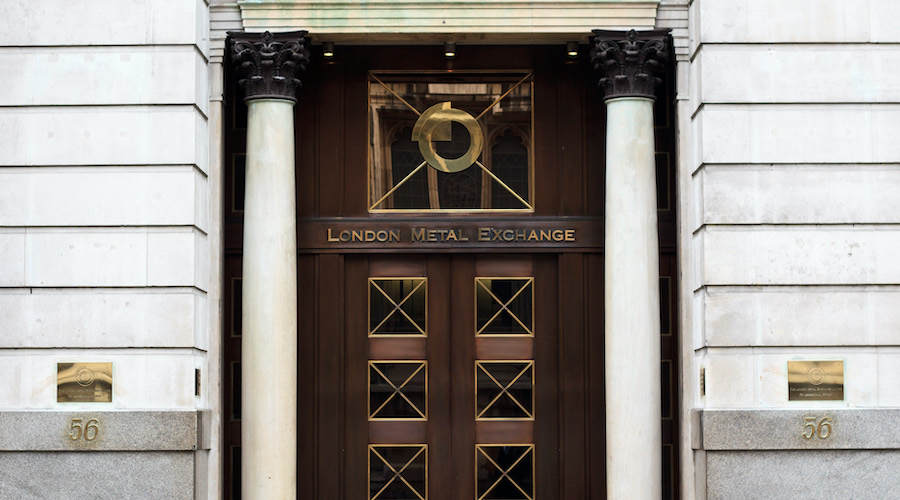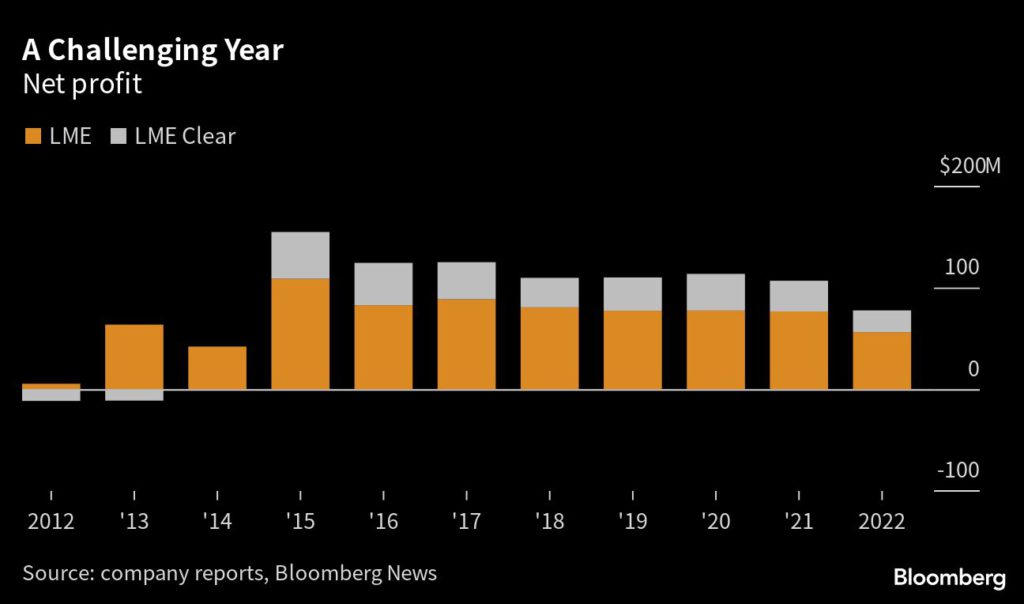LME profits fall to 8-year low as nickel crisis hits exchange

Profits at the London Metal Exchange fell to the lowest in eight years in 2022, as the massive short squeeze that brought the nickel market to a juddering halt in March took its toll on the exchange.
The LME’s annual profit fell 27% to $56.1 million, the lowest since before a hike in trading fees in 2015, according to its annual report. The drop was primarily due to lower volumes, which fell 7.5% as traders stepped back from the exchange following the week-long suspension of the nickel market, as well as increased expenses for legal and other professional fees.
Since the nickel crisis, the LME has been the object of strident criticism by some prominent fund managers, with Citadel founder Ken Griffin describing the events as “one of the worst days in my professional career in terms of watching the behavior of an exchange.” It is the target of legal action from hedge fund Elliott Investment Management and trading firm Jane Street over its decision to suspend the nickel market and cancel billions of dollars in trades.

In its report, the exchange described the total value of the claims, at $471 million, as “material,” but said that it had insufficient information to estimate their financial impact. “There remains a risk that other market participants may also seek to bring claims in relation to these matters,” it said.
A separate annual report from LME Clear, the LME’s clearinghouse, showed that its profits fell 29% to $21.4 million, the lowest full year of earnings since it started operations in 2014. Its spending on legal and professional fees jumped 592% to $4.5 million.
The LME was bought by Hong Kong Exchanges & Clearing Ltd. for $2.2 billion in 2012. In HKEX’s annual report published earlier this year, Chief Executive Nicolas Aguzin said that 2022 had been “a challenging year but also a seminal year” for the LME.
“As a parent company, HKEX continues to fully support the LME as it connects capital markets to the physical world,” he said.
(By Jack Farchy)
{{ commodity.name }}
{{ post.title }}
{{ post.date }}




Comments